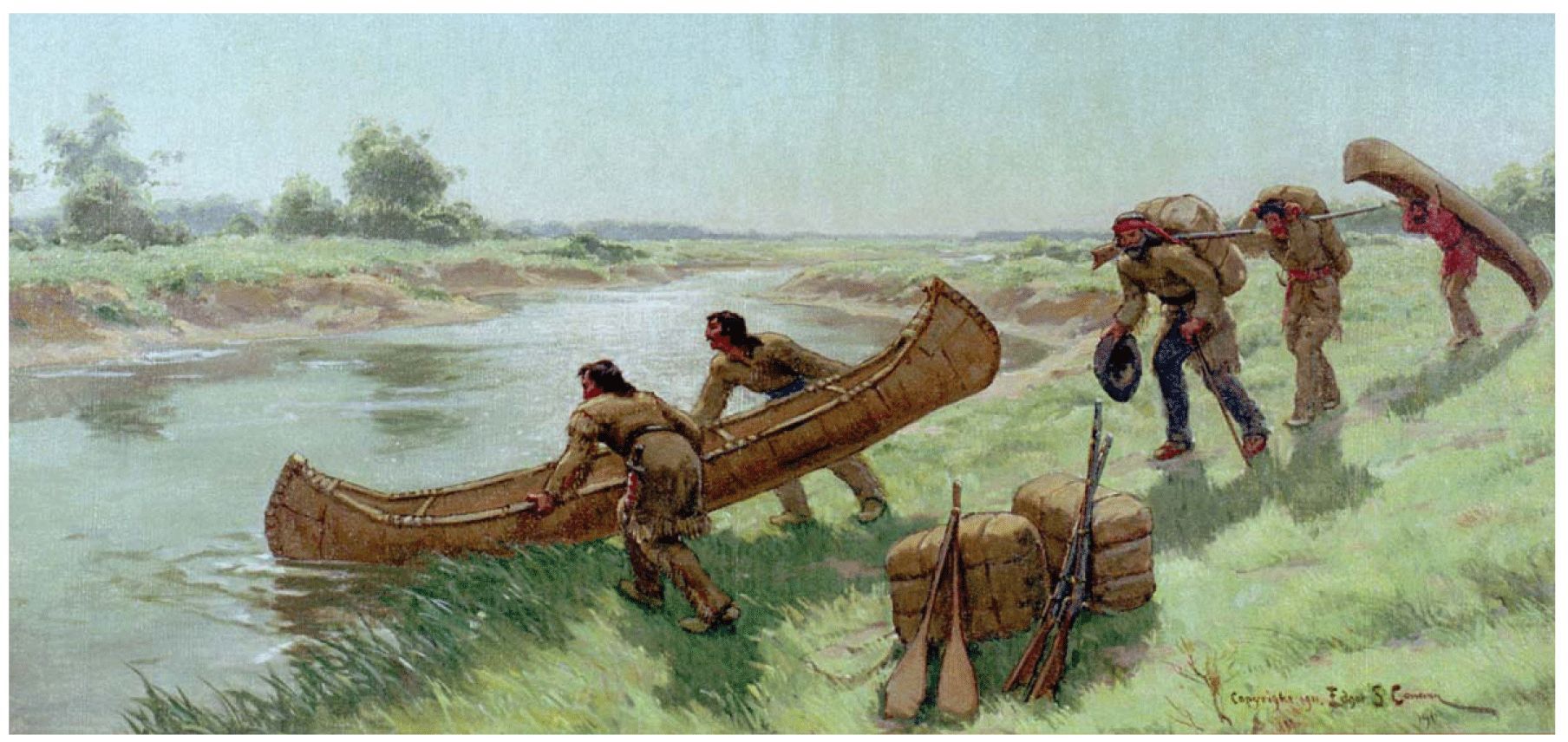The Chicago Portage archive is available for download as a single .zip file from here. The archive includes copies of The Chicago Portage Ledger, photographs of the site, and the video "Connected Worlds: The Story of the Chicago Portage.
Furthermore, this December, we are launching a new platform for our unique digital collections.
Please take a moment to preview it and let us know what you think!
What’s a Portage?
"Portage" is a very old word and not many people do it today. Used as a verb it means to carry something from one place to another.
A "portage", when used as a noun, is a connection or “carrying place” between two separate bodies of water.
Before we began building roads all over this continent, rivers and lakes were the “interstate” highways, The places where one could cross from one major waterway system to another became keys to traveling the continent.
Generally, portages occur at the “height of land” or at a watershed boundary. Travelers move their boats as far upstream (uphill) as possible, then unload all the goods and gear, then portage boats and cargo over the watershed divide to the headwaters of the waterway system in the next watershed, where they can then paddle downstream (downhill).
The portage at Chicago could be short, long or non-existent depending on the water levels in the Des Plaines River, Mud Lake and the South Branch of the Chicago River.
When Joliet and Marquette portaged their two birch bark canoes from the east end of Mud Lake to the West Fork of the South Branch of the Chicago River, they recorded the distance as a half a league , or about a mile and a half.
In spring floods, early travelers and surveyors noted that the waters of the Des Plaines and Chicago Rivers rose until they flooded Mud Lake and met. Then there was no portage at all.
In the dry summer months, when the water levels dropped, the portage could be as long as one hundred miles from the South Branch to the head of navigation on the Illinois River at LaSalle, Illinois .
Next page: What waterways did this portage connect?




